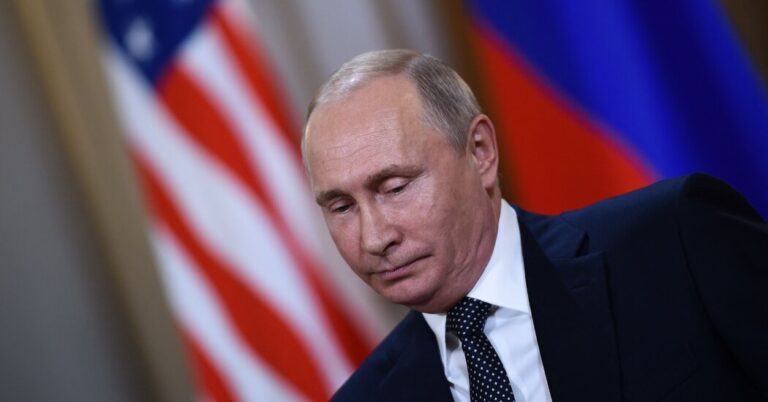Iran and Saudi Arabia Demand Gaza Cease-Fire
After the Saudi and Iranian leaders finished their speeches, they left the main conference hall for a bilateral meeting.
Prince Mohammed’s welcoming of Mr. Raisi amounted to a remarkable departure for the Saudi leader, who once bluntly warned Iran not to pursue expansionist policies in the region. “We won’t wait for the battle to be in Saudi Arabia,” he said in a televised interview in 2017. “Instead, we will work so that the battle is for them in Iran, not in Saudi Arabia.”
He also once likened Iran’s supreme leader, Ayatollah Ali Khamenei, to Hitler in interviews with American news outlets. “Because he wants to expand — he wants to create his own project in the Middle East very much like Hitler, who wanted to expand at the time,” the crown prince told CBS News in 2018.
Kristin Diwan, a senior resident scholar at the Arab Gulf States Institute in Washington, said that Riyadh’s close consultations with Iran demonstrated a pragmatism by the kingdom.
“They know Iranian cooperation is needed to prevent the conflict from spreading and, perhaps, even in navigating an endgame with Hamas,” Ms. Diwan said.
“But with some leaders boxed in by normalization and others demanding tougher measures, Saudi Arabia is well placed to hold the middle ground,” she said. “To succeed, they will need the Americans to step up.”
Since the war, Iraqi and Syrian militias backed by Iran have carried out a stream of rocket and drone attacks against American forces in Iraq and Syria. Hezbollah, the powerful Iran-backed militia group in Lebanon, has also continued to exchange fire with Israel’s military, raising fears of a wider conflict.
Hamas’s ties to Iran have also undergone an evolution in recent years. One of the group’s leaders in Gaza, Yahya Sinwar, restored Hamas’s ties to Iran, which had frayed in 2012, when Hamas shut its office in Syria, a close Iranian ally, during Syria’s civil war.
That restoration deepened the relationship between Hamas’s military wing in Gaza and the so-called axis of resistance, Iran’s network of regional militias, according to diplomats and security officials.
Saudi Arabia had initially scheduled two summits for this weekend, one for the Arab League and the second for members of the much larger Organization of Islamic Cooperation. But they were combined into one event on Saturday, and a newfound unity — even if on the surface — was on display.
President Bashar al-Assad of Syria and President Mahmoud Abbas of the Palestinian Authority also attended the summit. The presence of Mr. Assad, who was shunned over atrocities committed in Syria’s civil war, cemented his return to the regional fold when he joined an annual summit of Arab leaders in May for the first time in 13 years.
Mr. Raisi also met with President Abdel Fattah el-Sisi of Egypt on the sidelines of the summit and discussed the normalizing of diplomatic relations between Cairo and Tehran. Iran and Egypt broke ties after the revolution in 1979 and briefly resumed them during the short presidency of Mohamed Morsi, a senior leader of the Muslim Brotherhood, who was Egypt’s first democratically elected president.
Ahmed Al Omran reported from Jeddah, Saudi Arabia, and Yara Bayoumy from Jerusalem. Farnaz Fassihi contributed reporting from New York.
Check out our Latest News and Follow us at Facebook
Original Source







